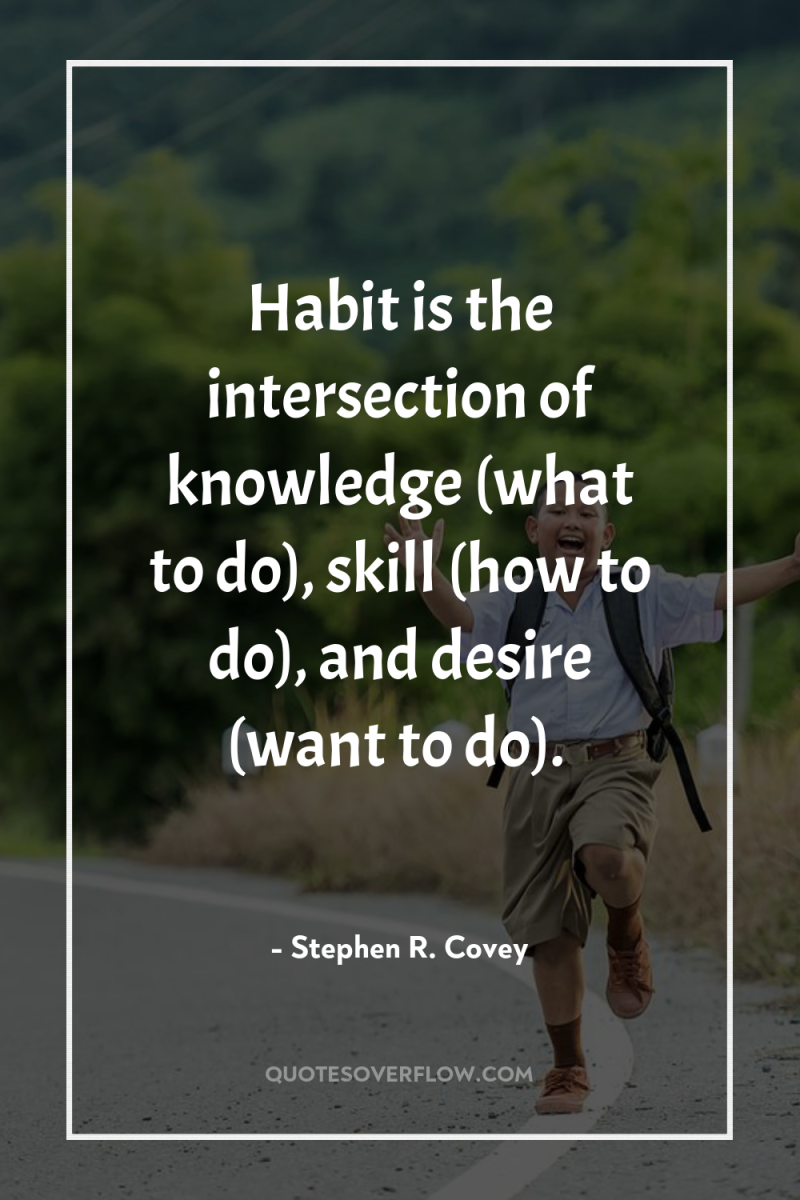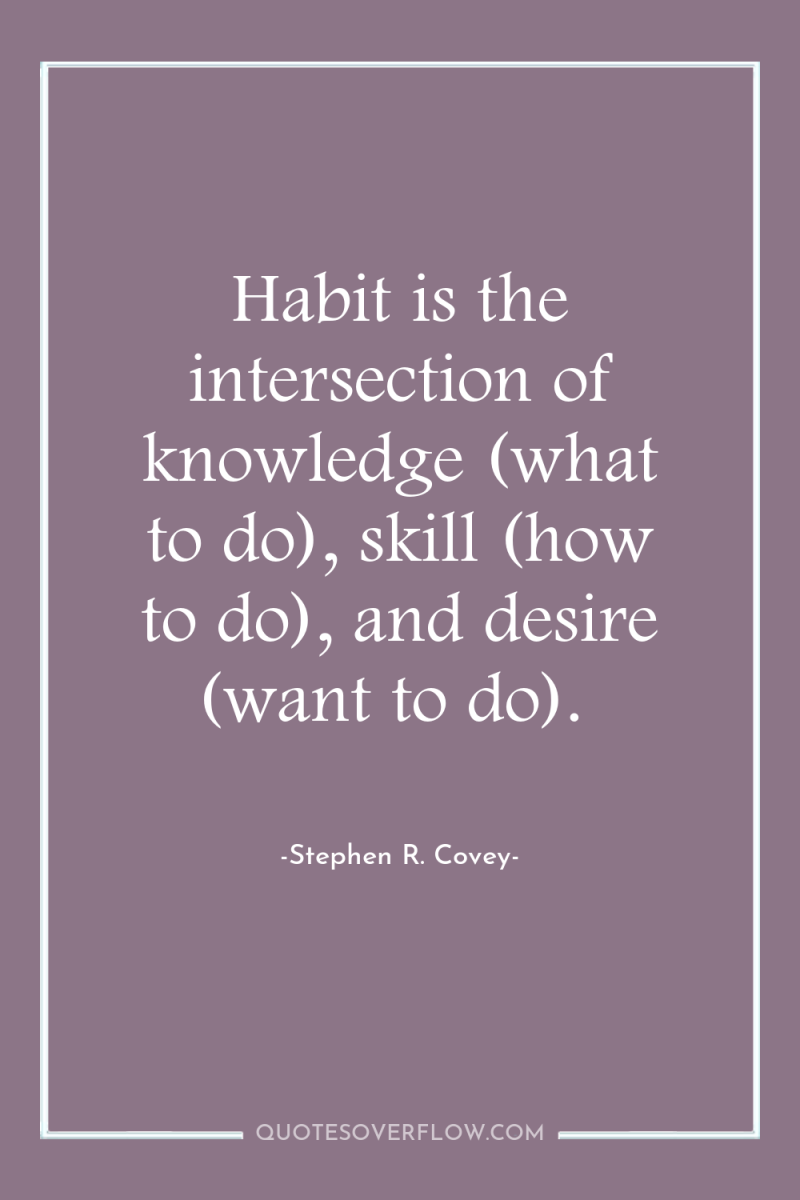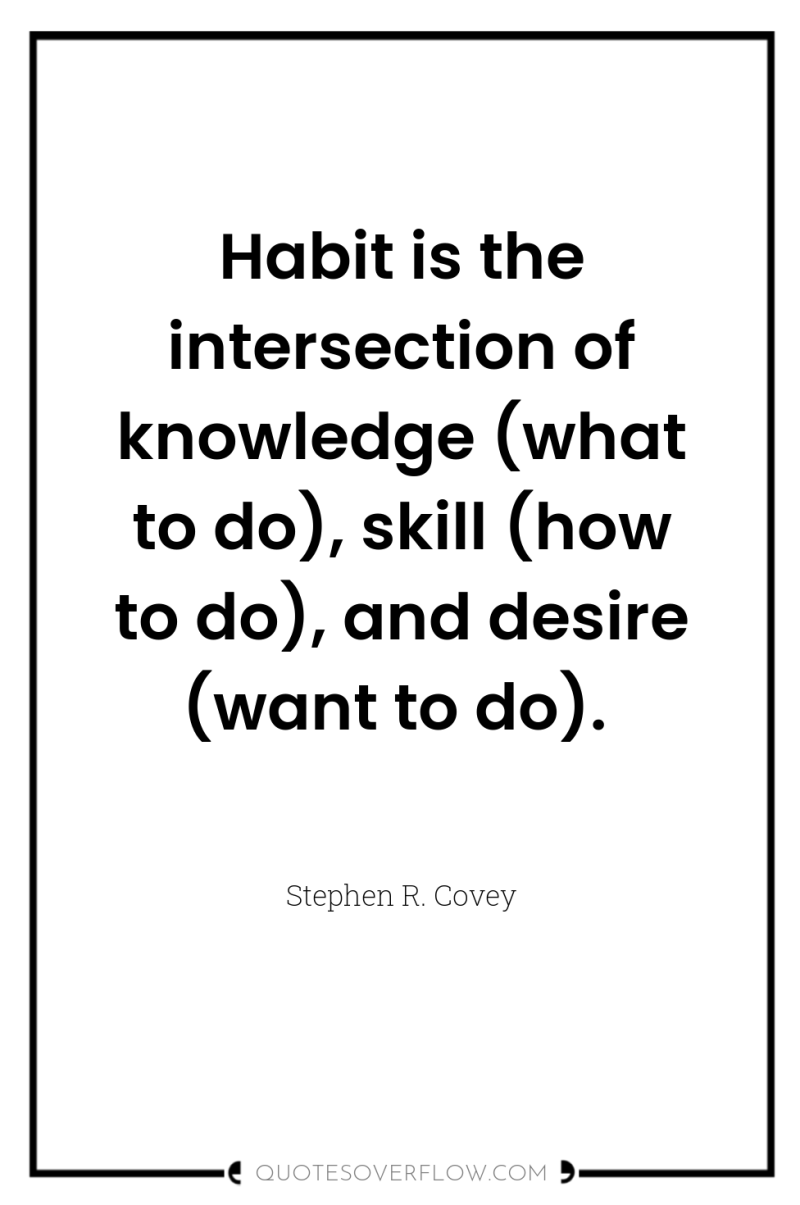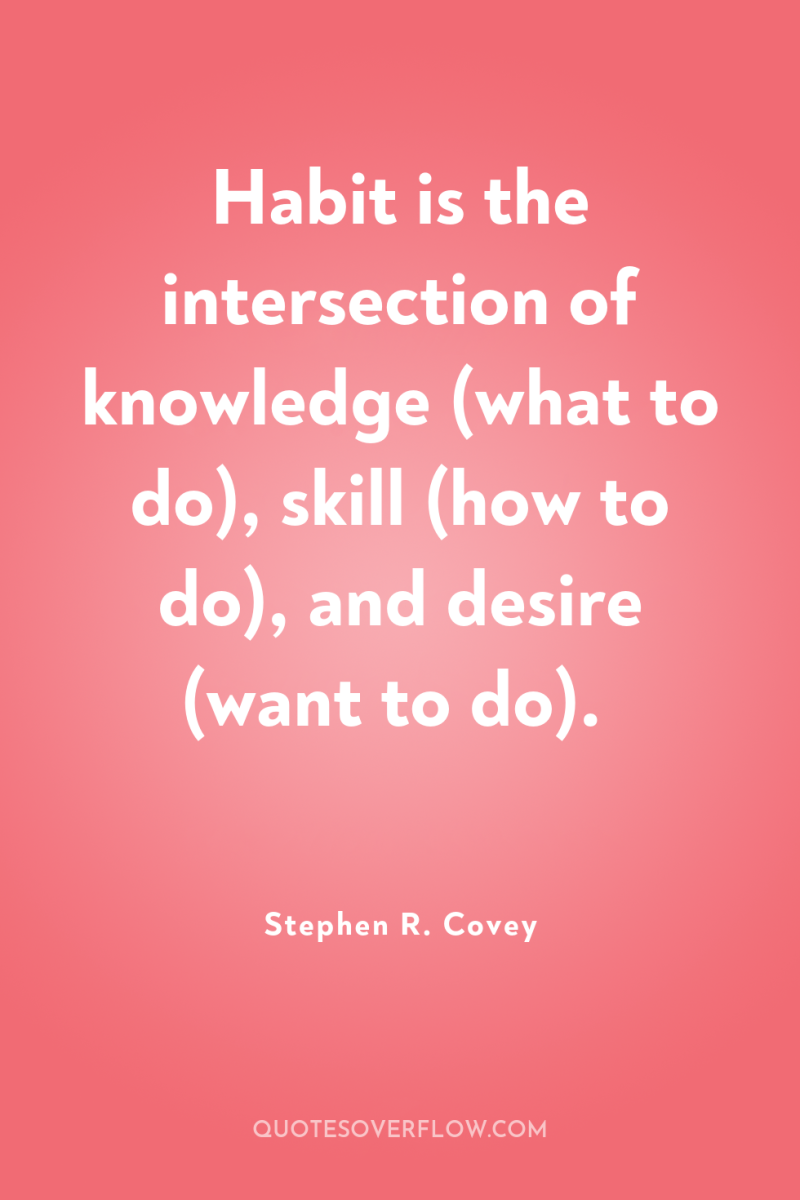Stephen R. CoveyHabit is the intersection of knowledge (what to do), skill (how to do), and desire (want to do).




About This Quote
Habit is the intersection of knowledge (what to do), skill (how to do), and desire (want to do). Habit is formed when you practice doing something over and over again. It becomes easier each time until it becomes automatic. Habits are formed when you do something regularly enough that it becomes second nature, like brushing your teeth or washing your hands.
Source: The 7 Habits Of Highly Effective People: Powerful Lessons In Personal Change
Some Similar Quotes
- A friend is someone who knows all about you and still loves you.
- The man of knowledge must be able not only to love his enemies but also to hate his friends.
- Ur be the things I am wiser to know: Idleness, sorrow, a friend, and a foe. Four be the things I'd been better without: Love, curiosity, freckles, and doubt. Three be the things I shall never attain: Envy, content, and sufficient champagne. Three be the...
- The eye through which I see God is the same eye through which God sees me; my eye and God's eye are one eye, one seeing, one knowing, one love.
- Conquer the angry one by not getting angry; conquer the wicked by goodness; conquer the stingy by generosity, and the liar by speaking the truth.]
More Quotes By Stephen R. Covey
- Love is a verb. Love — the feeling — is the fruit of love the verb or our loving actions. So love her. Sacrifice. Listen to her. Empathize. Appreciate. Affirm her.
- To touch the soul of another human being is to walk on holy ground.
- They [Nazi captors]had more liberty, more options to choose from in their environment; but he [Viktor Frankl] had more freedom, more internal power to exercise his options.
- Happiness, like unhappiness, is a proactive choice.
- Just as faith without works is dead, so also works without faith.